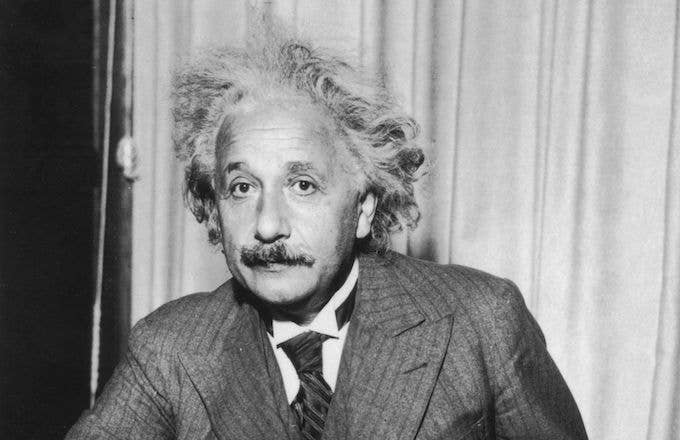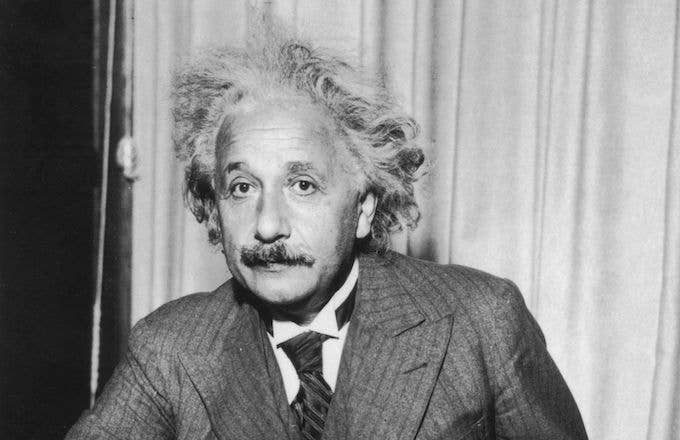
The publication of Albert Einstein’s travel diary during his visit to Asia in the 1920s exposes the scientist's troubling racist and xenophobic views of Asian people.
As the Guardian points out, the man who once described racism as “a disease of white people” was clearly plagued by said disease as late as his early forties. In his writings, which stem from 1922 to 1923, he calls the Chinese “industrious, filthy, obtuse people” and notes the following: “Chinese don’t sit on benches while eating but squat like Europeans do when they relieve themselves out in the leafy woods. All this occurs quietly and demurely. Even the children are spiritless and look obtuse.”
He also writes that “it would be a pity if these Chinese supplant all other races. For the likes of us the mere thought is unspeakably dreary.”
The person who translated Einstein’s writing, Ze’ev Rosenkranz, admits these comments counter the popular narrative that Einstein was a wonderful and tolerant humanitarian. “I think it’s quite a shock to read those and contrast them with his more public statements,” he told the Guardian. “They’re more off guard, he didn’t intend them for publication.”
This is the first time these entries have ever been translated to English and made easily available to the public. Those reading them will be able to read Einstein’s reductive, racist language about Asian people being “herd-like” and “more like automatons than people.”
He also spends time diving into terribly misogynistic views. “I noticed how little difference there is between men and women,” he wrote. “I don’t understand what kind of fatal attraction Chinese women possess which enthrals the corresponding men to such an extent that they are incapable of defending themselves against the formidable blessing of offspring.”
Einstein criticized the people of Sri Lanka, too, writing that they “live in great filth and considerable stench at ground level” adding that they “do little, and need little. The simple economic cycle of life.”
The famous physicist viewed the Japanese in a more positive light, though not less problematically. “Japanese unostentatious, decent, altogether very appealing,” he writes, but later qualifies that the “intellectual needs of this nation seem to be weaker than their artistic ones—natural disposition?”
“Einstein’s diary entries on the biological origin of the alleged intellectual inferiority of the Japanese, Chinese, and Indians," Rosenkranz wrote in an intro, "are definitely not understated and can be viewed as racist—in these instances, other peoples are portrayed as being biologically inferior, a clear hallmark of racism."
While Rosenkranz admits these views were common during Einstein’s days, they weren’t the only views around, meaning the scientist doesn't get a pass. “That’s usually the reaction I get—‘we have to understand, he was of the zeitgeist, part of the time’—but I think I tried here and there to give a broader context," he said. "There were other views out there, more tolerant views.”

